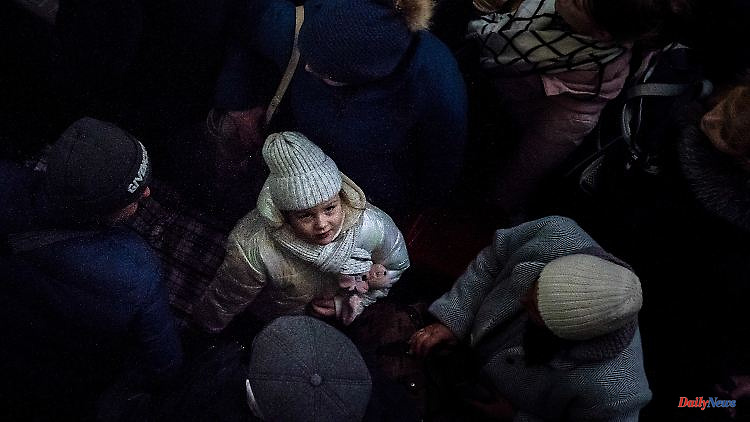After the Russians withdrew from Cherson in southern Ukraine, the next ordeal began for the civilians who remained there: at least 15 people died in bombardments on residential buildings, and several hospitals were evacuated. And prolonged blackouts are wearing down the whole country.
Ukraine is grappling with the devastating effects of recent Russian attacks. At least 15 civilians were killed in Russian shelling in the southern Ukrainian city of Kherson on Friday, according to the authorities. 35 other people were injured - including a child, said a representative of the recently liberated city. Meanwhile, technicians across the country scrambled to restore heat, water and electricity supplies to major Ukrainian cities.
According to the information, several residential buildings and multi-storey buildings were damaged in the shelling in Cherson. The region's military administration announced that hospitals would be evacuated because of "continued Russian bombing". The city council of Kherson said it offered to evacuate civilians to other regions.
Russian troops had occupied the city of Cherson for eight months. Two weeks ago, they withdrew from the city after Ukrainian troops continued to advance in the area. Cherson was the only regional capital captured by Russian troops. At the end of September, Russian President Vladimir Putin announced the annexation of Cherson and three other Ukrainian regions. Even after the troops withdrew from the city, the Kremlin emphasized that Kherson would remain part of Russian territory.
Across Ukraine, more than six million households were still without power on Friday after massive Russian attacks on power plants. "Tonight, power outages continue in most regions and in Kyiv," said Ukrainian President Volodymyr Zelenskyy in his evening video address. With six million affected households, the number has “halved” since Wednesday. The state electricity supplier Ukrenergo explained that the power grid was still 30 percent out of order. His technicians would work "around the clock" to complete the recovery. A better supply is expected for the weekend.
According to Selenskyj, around 600,000 customers were affected by power outages in the capital Kyiv. As a result of the blackouts, which sometimes last more than a day, long queues formed in front of the banks in Kyiv, as the journalist and author for ntv.de, Denis Trubetskoy, reports on Twitter. This is "not an expression of panic, but rather of practical necessity: Paying by card is often impossible during power outages."
In addition to the capital, the most affected regions also include Odessa in the south, Lviv and Vinnytsia in the west and Dnipropetrovsk in the interior. Systematic and targeted Russian bombing has brought Ukraine's energy infrastructure to its knees in recent weeks, just as winter has set in. This increases fears of a health crisis and another mass exodus from the war-torn country.
Today, Saturday, Ukraine commemorates the famine caused by the Soviet leadership in the country 90 years ago - the so-called Holodomor. The Ukrainian term Holodomor means killing through hunger and refers to the years 1932 and 1933. At that time, the Soviet ruler Joseph Stalin had triggered a great famine by forced collectivization of agriculture, from which several million people died in Ukraine.












